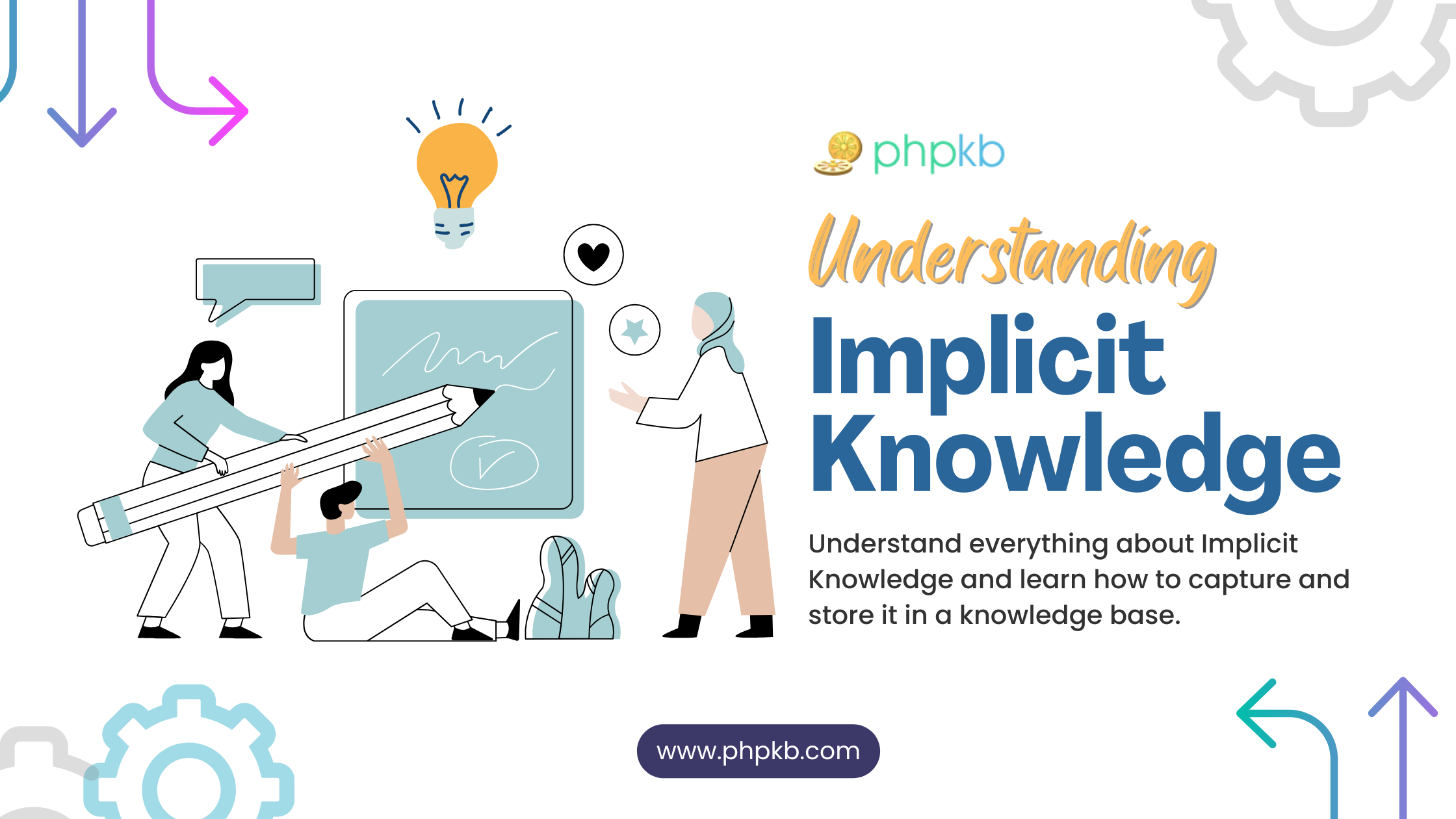Understanding Implicit Knowledge
Estimated Reading Time: 4 Minutes
In the realm of knowledge management, distinguishing between different types of knowledge is crucial for leveraging organizational wisdom effectively. Among these, implicit knowledge plays a pivotal role in the productivity and innovative capabilities of an organization. But what exactly is implicit knowledge, and why does it hold such significance?
What is Implicit Knowledge?
Implicit knowledge refers to the skills, experiences, and insights that individuals possess but may not be immediately conscious of or able to articulate. This type of knowledge is internalized through personal experience and often goes unshared because it's so ingrained in an individual's thought processes or methodologies. Unlike explicit knowledge, which can be easily documented and shared, implicit knowledge is subtler and resides within the minds of people, shaped by their experiences, beliefs, and perspectives.
Why is Implicit Knowledge Important?
The value of implicit knowledge lies in its ability to foster innovation, enhance decision-making, and streamline processes within an organization. It forms the backbone of problem-solving and creative thinking, allowing individuals to draw on their experiences and insights even when they may not be fully aware of doing so. Implicit knowledge is particularly vital in areas where intuitive judgments and expert insights lead to breakthroughs or in fields that rely heavily on nuanced understandings that are not easily quantified.
Is Tacit Knowledge the Same as Implicit Knowledge?
The terms "tacit knowledge" and "implicit knowledge" are often used interchangeably, but some distinctions are worth noting. Tacit knowledge, a concept introduced by Michael Polanyi, refers to knowledge that is so deeply rooted in an individual's experiences and subconscious that it cannot be easily articulated or transferred to others. Implicit knowledge, while similar, can be seen as a subset of tacit knowledge that might be articulated and shared with effort and the right techniques.
The Difference Between Tacit and Implicit Knowledge
The main difference lies in their transferability and articulation. Tacit knowledge is deeply personal and hard to communicate, often requiring shared experiences or extensive interaction for transfer. Implicit knowledge, on the other hand, is potentially articulable; with effort and the right methods, it can be shared and documented, even if it initially exists beneath the surface of conscious thought.
Capturing Implicit Knowledge and Storing it in a Knowledge Base
Capturing implicit knowledge requires a strategic approach that encourages individuals to reflect on and articulate their internalized understandings. Techniques such as structured interviews, storytelling, and peer assists can be effective. Knowledge management software, like PHPKB Knowledge Management Software, plays a crucial role in this process. PHPKB offers a platform for documenting, organizing, and sharing knowledge within an organization. By facilitating the creation of a comprehensive knowledge base, PHPKB enables the transformation of implicit knowledge into a more accessible format, making it available to others within the organization and preserving it for future reference.
Benefits of Storing Knowledge Inside a Company Knowledge Base
Storing knowledge, especially implicit knowledge, in a company knowledge base like PHPKB brings manifold benefits. Firstly, it democratizes access to the organization's collective wisdom, breaking down silos and fostering a culture of knowledge sharing. It accelerates onboarding and training processes, as new employees can tap into the accumulated insights and experiences of their predecessors. Moreover, it enhances innovation by making a vast array of insights and experiences readily available for problem-solving and creative thinking. Finally, it aids in knowledge retention, safeguarding against the loss of expertise when employees leave or retire.
Conclusion
In conclusion, implicit knowledge is a critical asset for any organization, driving innovation, efficiency, and competitive advantage. While capturing and articulating this type of knowledge presents challenges, the rewards in terms of organizational learning and capability building are substantial. Knowledge management systems like PHPKB provide an effective solution for harnessing the power of implicit knowledge, transforming it into a shared resource that fuels collective success. By fostering an environment where knowledge is actively documented and shared, organizations can ensure that their wealth of implicit knowledge is preserved, accessible, and continuously enriching their operations and culture.
In embracing these strategies, companies not only enhance their operational efficiency but also cultivate a robust knowledge ecosystem that adapts and evolves with the changing landscape of their industry. The integration of tools like PHPKB into these efforts exemplifies how technology can amplify the reach and impact of implicit knowledge, making it an indispensable pillar of modern organizational strategy.
For further reading on the nuances of implicit and tacit knowledge, as well as best practices in knowledge management, resources such as the Harvard Business Review and the Journal of Knowledge Management provide insightful articles and case studies. These can offer additional perspectives and strategies for harnessing the power of knowledge within your organization.